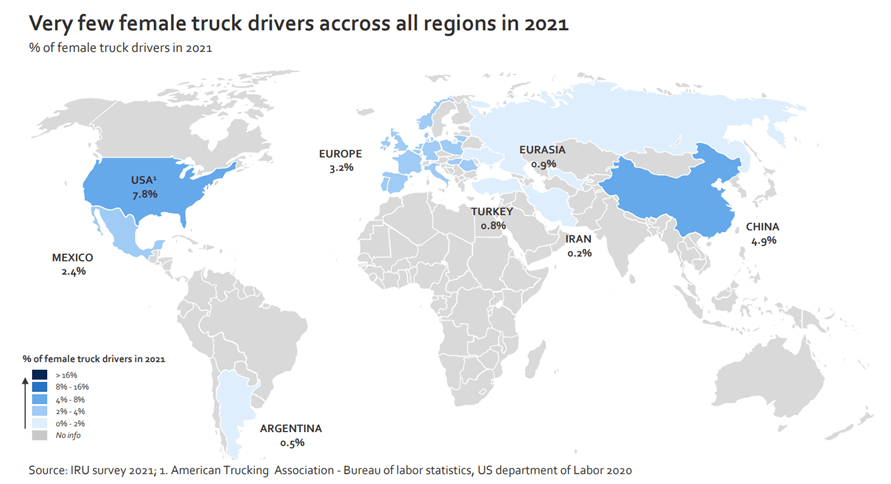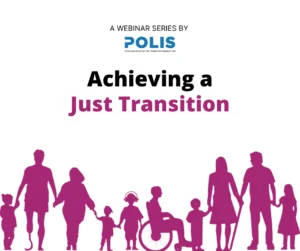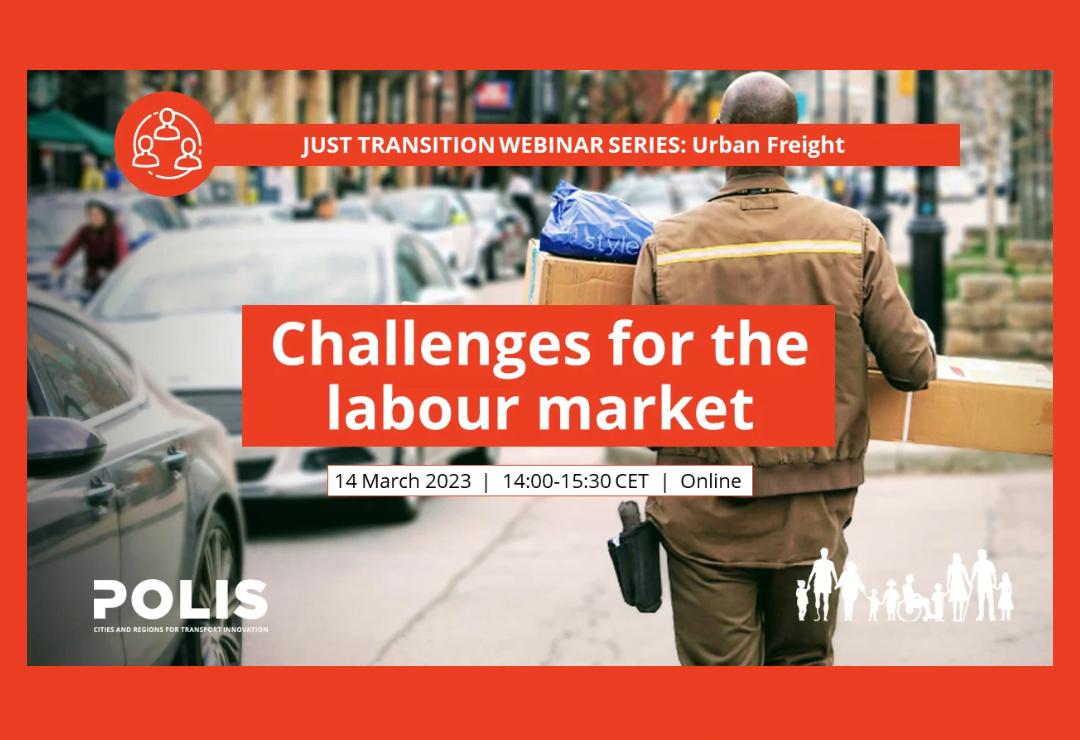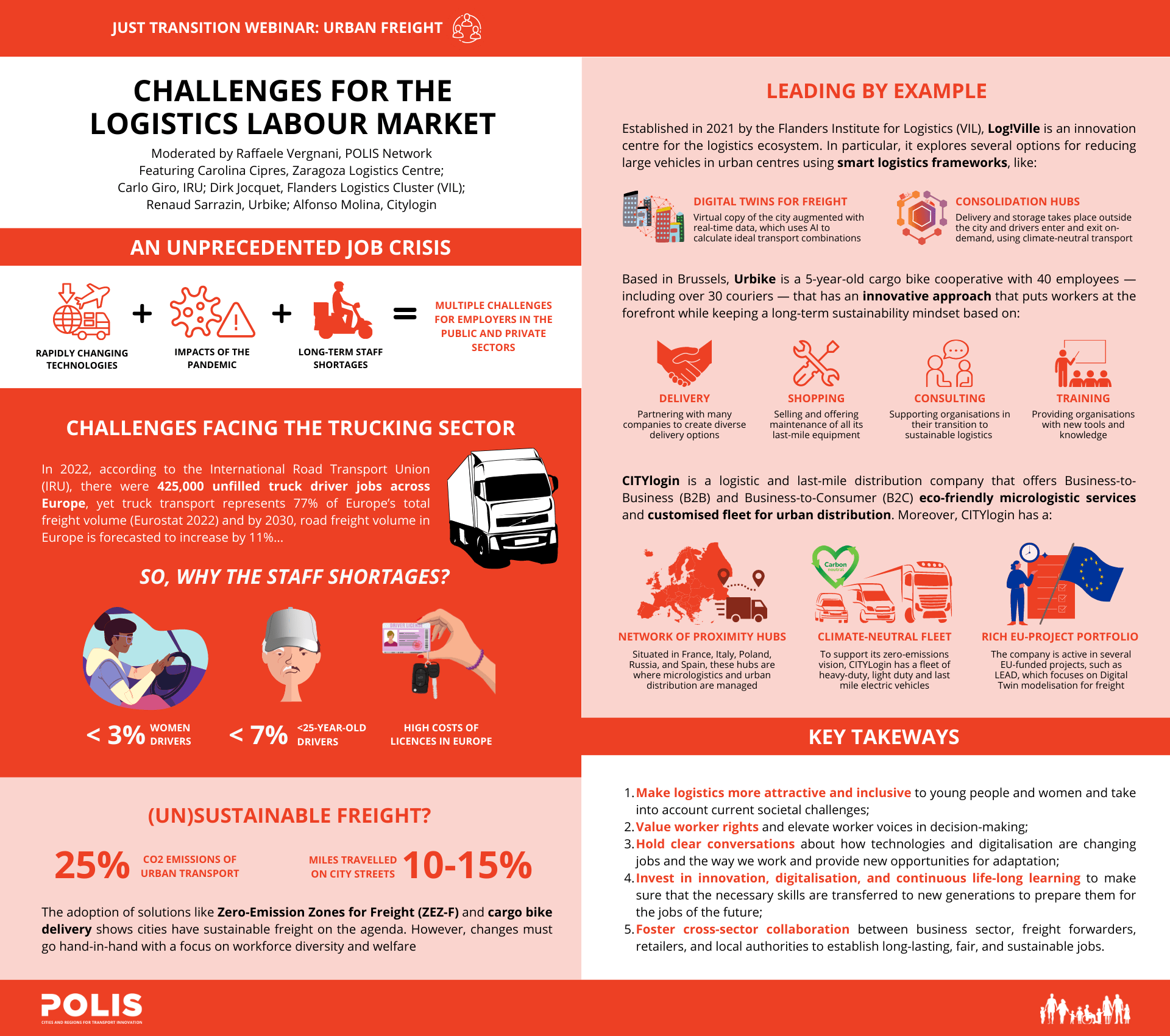Urban Freight Just Transition Webinar: “Delivering the jobs"
POLIS' Just Transition Webinar Series brought together experts from across logistics to examine the future of jobs in the sector, the challenges ahead and the responses needed.
The freight sector is facing an unprecedented jobs crisis. Rapidly changing technologies, the impacts of the pandemic, and long-term staff shortages are raising multiple challenges for employers both in the public and private sectors. Meanwhile, urban freight is responsible for 25% of CO2 from urban transport, representing 10 to 15% of vehicle equivalent miles travelled on city streets. Decarbonising the sector is a huge challenge which requires completely new ways of thinking and working. However, changes also come with a need to place the welfare of workers higher on the agenda.
The webinar 'Challenges for the logistics labour market' brought together key stakeholders from across the sector to explore this challenge, investigating the types of action underway to ensure that fair and just conditions for workers are in place.
The situation on the ground
Worker shortages — particularly in haulage — are raising many questions for the future of the sector. Meanwhile, new technologies are also radically reframing the skills needed, not just by drivers, but by functions across the industry. Indeed, the emergence and scale-up of small electric vehicles, white-label hubs, barrier-free access and micro-hubs are transforming the entire supply chain.
Gig platforms which are now occupying a significant area of the logistics sector are also raising questions for (and indeed growing scrutiny of) urban delivery workers and employers.
The global trends in supply chains
The webinar began with an overview of the key social, technological, political, and environmental trends which are — and will continue to — shape supply chains.
“World population is expected to increase from 7.4 to 8.6 billion people, 97% of this growth in developing countries, with 80% of the population predicted to be living in cities“, said Carolina Cipres, Director of Research of the Zaragoza Logistics Center.
Cipres introduced ReSChape, a project which is examining the trends, changes and disruptions and their impact on supply chains, proposing new and innovative models, and Policy scenarios for positive social impact including level playing field developments.
Challenges facing the trucking sector: Chronic driver shortages and an unattractive sector
To explore this issue further, Carlo Giro (Manager — EU Goods Transport) from the International Road Transport Union (IRU) — the world road transport organisation, representing the entire industry — bus, coach, truck, and taxi — and operating across more than 70 countries worldwide.
Around 3 million professional drivers are employed in road transport and logistics in Europe today. However, in 2022, according to IRU, there were 425,000 unfilled truck driver jobs across Europe. Last year alone, a 44% increase in demand for professional drivers was underpinned by the sector’s lack of appeal to younger potential recruits and women.
“Driver shortage is a topic we have been following for many years, and we carry out a yearly survey to find out the changes and developments in driver shortages,” reported Giro.

Image: % of female truck drivers in 2021. Source: Source: IRU survey 2021; 1. American Trucking Association - Bureau of labor statistics, US department of Labor 2020. https://www.iru.org/resources/iru-library/driver-shortage-global-report-2022
Focus on Log!Ville innovation cluster

Image: Log!Ville in action. Source: Dirk Jocquet
As automation and robotics continue to transform logistics, the organisation has taken a lead role in bringing together partners from across the sector to collaborate on innovative solutions, such as urban logistics.
Log!Ville is an innovation centre for the logistics ecosystem. The organisation invites companies to experience future technologies which are already commercially available, but not yet mainstream, and how these can be implemented- what are the processes needed, the returns and challenges.
Urbike, an accelerator of change in urban logistics, putting workers at the core

Image: The Urbike team in 2022 (source: urbike)
Last-mile delivery workers often face problematic working conditions. Indeed, the last several years has seen these propelled to the fore of political debate around transport labour worldwide, as working conditions, labour rights and benefits have been vigorously contended between operators, local authorities, unions and the workers themselves.
In Brussels, an innovative approach is putting workers at the forefront while keeping a long-term sustainability mindset - Urbike is a cargo bike cooperative, now five years old, with 40 employees – including over 30 couriers.
“As you all know, the context of the EU Green Deal has set ambitious carbon reduction goals, meaning last mile logistics decarbonisation has become a key challenge,“ said Renaud Sarrazin, co-founder of Urbike.
CITYLogin: an eco-friendly micro-logistics option
CITYLogin is a logistic and last-mile distribution company which offers micro-logistic services, Business-to-Business (B2B) and Business-to-Consumer (B2C), with an eco-friendly solution for urban distribution, with a customised fleet that adapts itself to the different mobility and pollution restrictions from urban centres.
“Our model is to create local hubs, creating as low an environmental impact as possible,” said Alfonso Molina from CITYLogin.
Read the full report HERE.
About the Just Transition webinar series:
 At the 2021 Annual POLIS Conference in Gothenburg, we launched the Just Transition Agenda.
At the 2021 Annual POLIS Conference in Gothenburg, we launched the Just Transition Agenda.
Urban mobility has to change substantively, to become cleaner and more resilient- this is no secret. However, affordability, safety, and inclusivity must be at the heart of this transition. A just transition in urban mobility ensures that the shift towards low-carbon mobility is equitable and beneficial to all members of society.
However, there is a long road (train track and bike lane) yet to travel.
Across several online events in February and March 2023, we traverse the multifaceted ways affordability, gender-related mobility patterns, age, cognitive capacities (and more), can guide the future of our cities and regions.
A truly Just Transition is one which addresses imbalance and unfairness across the entire mobility spectrum. Thus, each webinar launches an examination of mobility justice from a specific perspective, in accordance with POLIS’ different working groups.
From freight to parking, traffic efficiency to active travel, electromobility to safety- and everything in between- we begin to discuss how each sector has its part to play, the challenges ahead, and how cities and regions are treading new ground.

